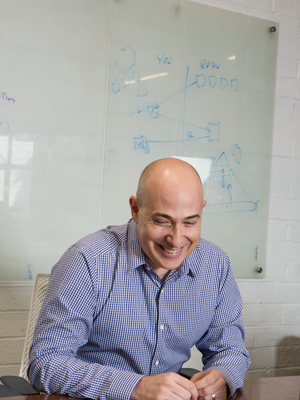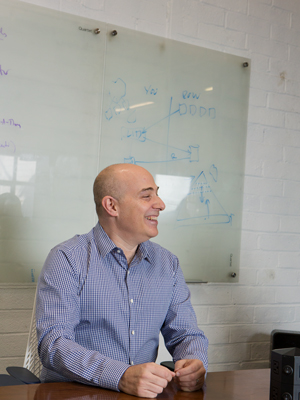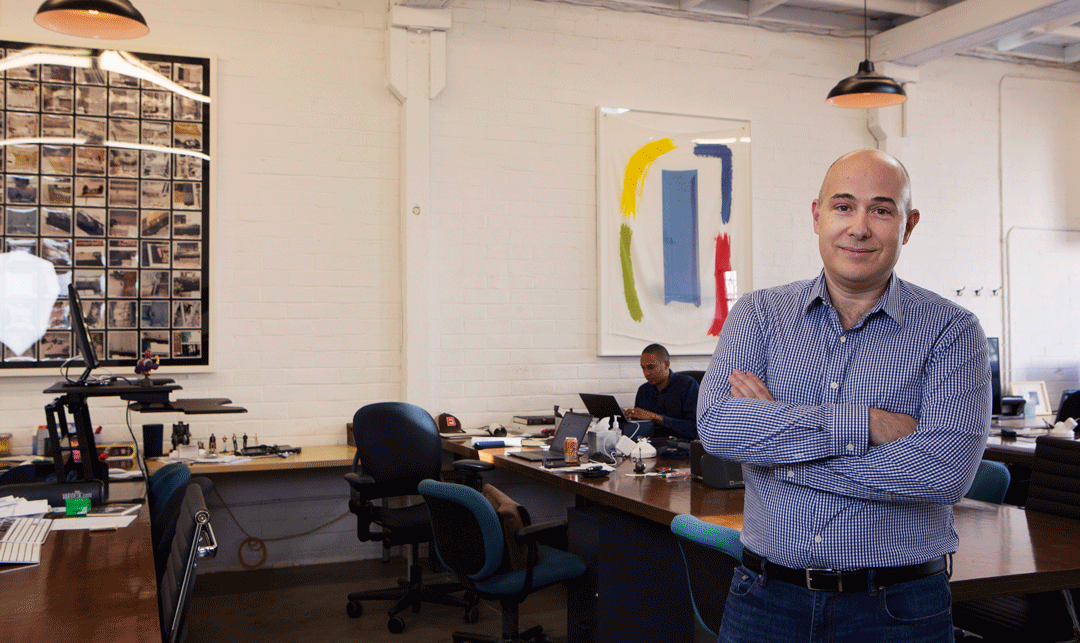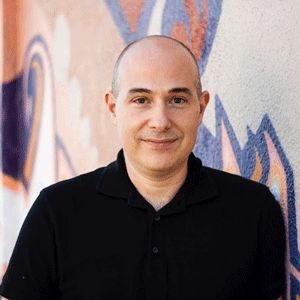If you had asked ten-year-old David Waxman to pick his favorite hangout spot, he would’ve quickly told you the Lawrence Hall of Science in Berkeley, Calif. The co-founder of Los Angeles-based venture firm TenOneTen Ventures admits the science museum was also one of the few places he could walk to from his home.
“It’s in the Berkeley Hills, and there’s not much else up there,” he says. “I started hanging out in the science museum, which I think had a pretty big impact on me.”
Waxman volunteered at Lawrence Hall from an early age, doing everything from changing rat cages to helping visitors navigate the science center, which is linked to the University of California, Berkeley.
Volunteering also gave him access to a piece of technology the average American was just starting to access in the late 1970s—a computer.
“They had a mainframe with teletypes and early microcomputers,” Waxman recalls. “I got to see and play with all this new technology. That’s how I first learned how to program computers and got really interested in it.”
The exposure certainly helped build the foundation of what would become a career as a serial entrepreneur launching technology companies including Spot Runner Inc., PeoplePC Inc., and Firefly Network, Inc.
Now, as the managing partner of TenOneTen, Waxman has settled into a different type of role—one allowing him to mentor and invest in the plethora of startups flooding Los Angeles and beyond.
“Today, people are moving from all over the world to build their companies here [Los Angeles],” Waxman says. “When we started it was somewhere in the middle. We could see this happening and we felt we had a great position in the market with our operational experience and our tech experience.”
Today, people are moving from all over the world to build their companies here [Los Angeles]
Green Light
TenOneTen, named after LA’s 10 and 110 freeways, was launched in 2014 by Waxman and co-founder Gil Elbaz, founder and chief executive of LA-based data company Factual. Elbaz was also the co-founder of ad tech company Applied Semantics, Inc., which Google acquired in 2003 for $102M.
The venture capital firm launched at a time when LA’s startup scene was gaining momentum as a hub of tech talent with heavy-hitters such as Dollar Shave Club, The Honest Co., and Snap Inc. (which caused a stir when it turned down a $3B buyout from Facebook the previous year).
While Waxman said its entry into the market was tough, it was a challenge he was ready to tackle. “Creating a fund added a whole layer of learning [on] how to become a fund manager, which is different than just investing. There was a lot to learn and a steep learning curve. We’ve grown since then.”
Running a venture capital fund means focusing less on hype and more on providing returns, according to Waxman.
“If you’re talking about pensions or folks with their own fiduciary duties they’re not allowed to geek out,” he says. “They have to worry about returns. This is very much a part of a bigger financial strategy so it’s a little less of an emotional decision.”

It’s why the firm pays particular attention to startups whose team displays tenacity. Waxman, who has experienced his own failures, said those displaying a drive to climb over the inevitable obstacles arouse the most interest from TenOneTen.
“We’re not shopping for friends, but we want to respect and believe in them because we’re following them essentially into battle,” he says.
Companies in TenOneTen’s arsenal include LA-based developer of a marketing analytics platform Conversion Logic, the Palo Alto delivery-app Curbside, and Santa Monica-based drone intelligence company AirMap.
Strong Byte
Waxman’s eye for spotting potential investments is from more than twenty years as a tech entrepreneur and self-proclaimed computer geek and music lover.
While his high school friends earned a few dollars per hour delivering pizza, he worked as a programmer for a Berkeley software company earning five times as much.
After graduating from UC Berkeley with a degree in computer music, he jetted off to Paris to teach at the Institute for Research Coordination in Acoustics/Music (IRCAM).
One day, MIT Media Lab professor Tod Machover came to visit the institute and was impressed with Waxman’s work, including a public sound installation he put together at the time. “He said, ‘Why don’t you come to MIT?’” Waxman recalls. “I said no. I was an idiot.”
He quickly changed his mind and snagged a spot in the competitive Media Lab program and, ultimately, launching his path to building startups.
He said ‘Why don’t you come to MIT?’ I said no. I was an idiot.
During his last semester, Waxman was seated on a flight next to Nick Grouf, who was finishing his last semester at Harvard Business School.
“We realized we were at the same New Year’s Eve party, and we had friends in common,” he says. “Nick really wanted to start a company. It’s almost cliché now—Harvard Business School kid wants MIT kid—but back then it was pretty unusual.”

The pair launched Firefly Network, Inc., a provider of personalization software, with some of Waxman and Grouf’s colleagues in 1995. Three years later, Microsoft Corp. acquired the tech company for an undisclosed sum.
In 1999, Waxman and Grouf launched their second company, PeoplePC, which offered a personal computer bundled with Internet service for a monthly fee.
It shifted from a direct-to-consumer business after automaker Ford wanted to strike a deal worth $380M to offer PeoplePC’s service to its employees. “We were only 20 people so it was pretty intense,” Waxman says.
PeoplePC went on to work with Delta Airlines, New York Times, and Universal Studios Hollywood. The company went public in 2000, and the partners sold the firm to EarthLink in 2002.
Lesson Learned
But success can also be met with failure as evidenced by the partners’ third company, Spot Runner, a television advertising startup founded in 2004. The company quickly rose to the top, raising an estimated $100M by 2008 while growing to 500 employees.
I think the world is catching on to LA. I’m hoping this is the last job I ever have.
However, a year later it was running on empty. The startup laid off more than 200 employees and was facing a lawsuit by advertising giant and investor WPP. The case was later dismissed and the co-founders sold off the company’s assets.
“Failure is often talked about as a great way to learn,” Waxman observes. “It’s highly overrated. I did learn a lot but man, that was a very expensive lesson. It was just incredibly painful for everybody involved.”
It was then that Waxman decided to take a break. He was spending his time consulting and serving as an angel investor, which helped prime him for the launch of TenOneTen.
Now, Waxman deems the flurry of activity in LA’s tech scene and the growing number of talented engineers calling the area home encouraging, both personally and professionally.
“I think the world is catching on to LA,” he says. “And I’m hoping this is the last job I ever have.”
Photos by Tim Hans














































